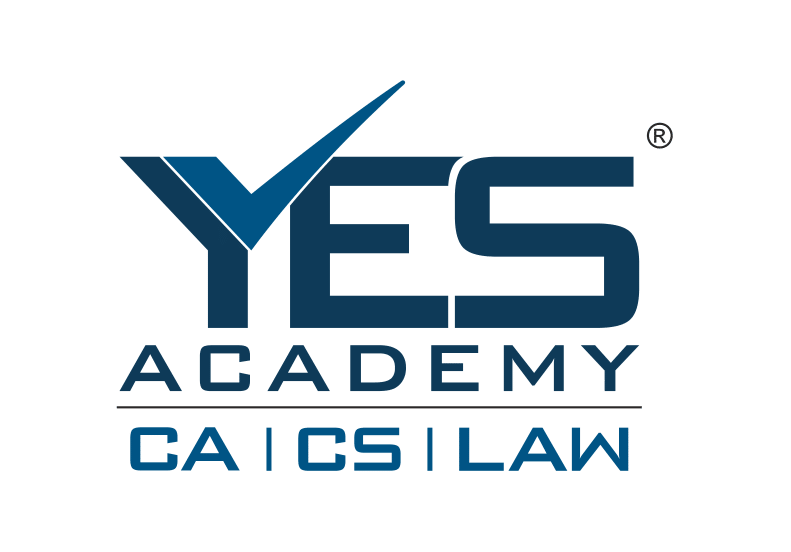In the corporate world, good corporate governance is essential for future success. The role of Company Secretaries has expanded beyond mere compliance to navigate complex legal and regulatory landscapes. They ensure companies adhere to ever-changing laws domestically and internationally, making them indispensable in today's business environment. Company Secretaries establish organizational transparency, ethical conduct, and accountability, mitigating risks and fostering good governance. Their expertise is crucial for the future of the corporate world.
Here are some aspects that may define the scope of a Company Secretary in the future:
Corporate Governance: The importance of corporate governance is likely to continue growing, with increased emphasis on ethical practices, transparency, and accountability. Company Secretaries will play a vital role in ensuring compliance with governance standards.
Regulatory Compliance: As regulatory frameworks become more complex and dynamic, Company Secretaries will need to stay updated with the latest legal and regulatory requirements.
Strategic Advisory: CS can contribute significantly to strategic decision-making processes. They possess a holistic understanding of the organization's operations and governance practices.
Stakeholder Management: Effective communication and relationship management with stakeholders will be a critical aspect of the CS role in the future.
Sustainability and ESG: Environmental, Social, and Governance (ESG) considerations are gaining prominence in the corporate world. Company Secretaries will likely be involved in developing and implementing sustainability strategies.
IS CS A GOOD CAREER OPTION:
Are you intrigued by the prospect of choosing CS as a career? It is certainly worth contemplating, particularly for individuals with a commerce background. Moreover, it's worth emphasizing that the expenses associated with pursuing this course are minimal, making it accessible to students from all walks of life. Additionally, there are no restrictions based on age or caste, further enhancing its appeal as a viable career path.
It provides two types of career options as a CS. One is as a CS in Employment; the other is CS as a Practitioner.
Scope of CS in Employment:
- CS is a highly respectable job in India, coupled with legal responsibility. As a CS in Employment, you'll ensure that a company operates within legal and regulatory frameworks. You'll be the go-to person for the Board of Directors, advising them on governance, compliance, and ethics.
- A CS is defined as a KEY MANAGERIAL PERSON under the Companies Act, 2013
- All Companies with a paid-up share capital of Rs. 10 crores or more are required to appoint a whole-time Company Secretary under section 203 of the Companies Act, 2013.
- All Listed Companies in India must appoint CS as a Compliance officer, which is, again, a senior position in any organization.
CS in Practice/Self-Employed
- A CS in Practice is recognized to issue compliance certificates and attest documents under the:
The Companies Act, 2013
SEBI Act, SCRA, and
Depositories Act, 2013
- He is required to certify the Annual Return of every company.
- He is needed to Certify multiple E forms of the Companies Act 2013 that are to be filed regularly with ROC.
- Under the Listing Regulations, he is authorized to issue a Corporate Governance Certificate.
- He is also authorized to issue compliance certificates and so on.
AFTER COMPLETING COMPANY SECRETARY WHAT I CAN DO:
Upon successfully finishing your CS studies, many career pathways open up before you. Below are a few prevalent options that you may wish to explore:
Compliance Officer: With your knowledge of laws and regulations, you can pursue a career as a Compliance Officer. In this role, you would ensure that an organization adheres to legal and regulatory frameworks, conducts internal audits, develops compliance policies, and provides training to employees on compliance matters.
Corporate Secretary: Many companies, especially larger organizations, require the expertise of a CS to ensure compliance with legal and regulatory requirements.
Legal Advisor: As a CS, you have a solid corporate and commercial law foundation. You can leverage this knowledge to work as a Legal Advisor or Legal Consultant, providing legal guidance to individuals or organizations on various legal matters such as contracts, intellectual property employment law, or corporate restructuring.
Corporate Governance Professional: You can offer your expertise as a Corporate Governance Consultant to help organizations establish effective corporate governance structures, policies, and practices.
Risk Manager: Your understanding of corporate governance and legal compliance positions you well for a career in risk management. As a Risk Manager, you would identify and assess potential risks to an organization's operations, develop risk mitigation strategies, and ensure compliance with relevant regulations to minimize potential liabilities.
Entrepreneurship: You can start your consultancy firm or business. You can offer services like company registration, legal compliance, and corporate secretarial assistance to SMEs & startups.
Academic and Teaching: If you have a passion for sharing knowledge, you can become a lecturer, professor, or researcher in the field of law, corporate governance, or business administration, imparting your expertise to aspiring professionals.
GOVERNMENT JOBS AFTER COMPANY SECRETARY:
You have completed your journey as a Company Secretary and are probably wondering what's next. Well, let me show you a fantastic option that awaits you: government jobs! Yes, you heard it right.
After becoming a CS, government jobs can be an incredible opportunity to showcase your skills and contribute to the nation. The government sector provides a wide array of roles where your expertise as a CS can come in handy.
One of the company secretaries' most common government positions is in regulatory bodies like SEBI or RBI. These institutions play a crucial role in shaping and monitoring the financial sector. As a CS, you can make a significant impact by ensuring compliance and promoting transparency.
SEBI Grade A exam is a reputed government-held exam that is conducted every year, and there is a scope for company secretaries to apply for the same based on CS qualification.
Additionally, government ministries and departments and Public sector organizations backed by govt. Also, require CS professionals to handle legal and corporate affairs. You could find yourself working on policy formulation, drafting legal documents, or providing expert advice on matters related to corporate governance.
Apart from the monetary benefits, government jobs offer stability, security, and attractive perks. You'll be able to work with experienced professionals and gain exposure to diverse projects.
If you're passionate about serving the nation and making a difference in the corporate world simultaneously, exploring government jobs after becoming a CS is the perfect career move for you. Embrace the possibilities, prepare yourself, and embark on this exciting new chapter of your professional journey. The world of government awaits!
CS SCOPE AND SALARY
The role of a Company Secretary encompasses a broad range of responsibilities, making it a multifaceted profession. From ensuring compliance with regulations to serving as a governance expert, the Company Secretary plays a pivotal role within an organization. In the following paragraphs, I will provide a concise overview of this diverse field:
- Secretarial Audit: Secretarial Audit is entirely and exclusively done by a qualified CS.
- Filling various documents/returns as required under the provisions of various Corporate Laws.
- Acting as a Compliance Officer for Listed entities.
- Acting as a bridge between the Board of the company and the outsiders.
- Representing the Company before Various Authorities.
- Ensuring that the correct procedures have been followed would result in the correctness, authenticity and comprehensiveness of the information, statements and reports filed by the listed entity under these regulations.
- Providing Certificate regarding Transfer of Securities to listed entities
- Issuing certificate regarding compliance with conditions of Corporate Governance.
- Issuing a certificate regarding the Issuance of securities to more than 49 and up to 200 investors and the refund procedure as prescribed by SEBI has been duly complied with.
- A practicing Company Secretary who is a Valuer is recognized under the following Regulations:
- SEBI (Real Estate Investment Trusts) Regulations, 2014
- The SEBI (Infrastructure Investment Trusts) Regulations, 2014
SALARY STRUCTURE
- The salary structure of a CS varies depending on factors such as the size of the company, the location, and the experience and qualifications of the individual.
- Generally, a fresher CS can expect to earn an average annual salary of around Rs. 4-5 lakhs p.a
- For a mid-level CS with around 5-10 years of experience, the average annual salary can range from Rs. 10- 24 lakhs p.a.
- At a senior level, with more than ten years of experience, the salary of a CS can go up to Rs. Fifty lakhs p.a or even higher, depending on the company's size and industry.
SCOPE OF CS IN BANKS
Banking and financial institutions are the strong backbone of any economy. The functioning of the banking and financial Institutions differs from other corporate entities in many ways, which makes good corporate governance of banks critical.
From a Company Secretary's perspective, the Scope of CS in Banks can be described as follows:
- Discussion Paper on Governance in Commercial Banks in India, released by RBI, recommended that all banks, whether listed or unlisted, shall have a Whole-time CS.
- All banks, whether listed or unlisted, shall undertake a secretarial audit by a Practicing CS as per section 204 of the Companies Act,2013.
- CS needs to oversee the compliance of various RBI formalities.
- Assisting Banks & Financial Institutions in their Corporate Restructuring.
- Ensuring Corporate Governance Practices
- Public examination of directors and auditors
- Has the power to conduct concurrent Audit
- Conduct Internal Audit.
Overall, the role of a CS in a bank is important in ensuring that the bank operates legally and ethically, & RBI is constantly emphasizing maintaining good corporate governance, which will make the role of CS more.
You can also Visit - https://www.icsi.edu/media/webmodules/publication.pdf


